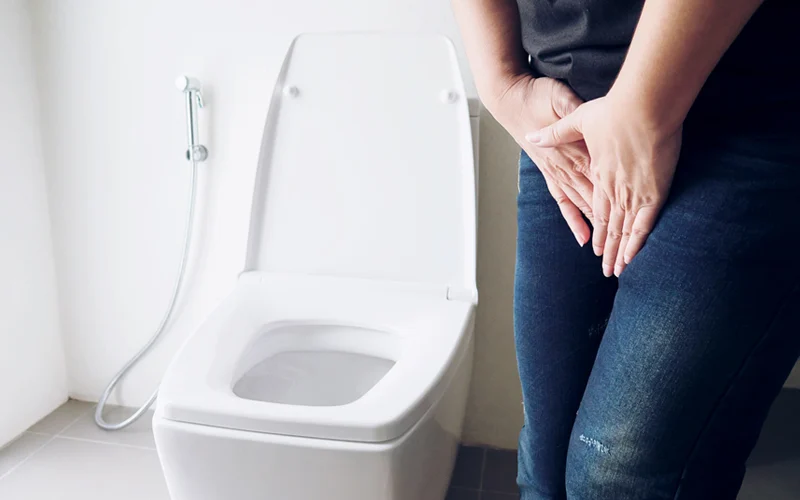
The weakening of the pelvic floor muscles is one of the reasons why women experience stress urinary incontinence or SUI.
Physical activity that increases abdominal pressure can sometimes cause urine leakage, otherwise known as stress urinary incontinence (SUI). It is a fairly common medical condition that affects many women in Malaysia especially those in the older age group.
According to consultant obstetrician and gynaecologist in Subang Jaya Medical Centre (SJMC) Dr Pauline Pue Leng Boi: “SUI can occur due to the weakening of the pelvic floor muscles as a result of childbirth and perimenopause or menopause. Though not as prevalent among the male community, there is a possibility of men experiencing SUI after prostate surgery.”
She further explained that it is easy to confuse SUI with urge incontinence (UI) due to the similar nature of both conditions. However, those suffering UI are unable to hold in even small amounts of urine due to an overactive bladder that causes the bladder muscles to contract frequently.

Dr Pauline Pue Leng Boi, Consultant Obstetrician and Gynaecologist
at Subang Jaya Medical Centre (SJMC)
Furthermore, UI can be due to infection or bladder stones, although for the majority of cases, no apparent cause is found. UI can be treated with medication and physiotherapy that retrain the bladder.
Activities that can cause urine leakage
Unlike those with UI, women with SUI may find that they leak urine when doing the following:
coughing
sneezing
laughing
exercising
any type of activity that puts pressure on the abdomen.
Multiple trips to the bathroom in one day and the inability to hold in urine are not typical symptoms of SUI unless it coexists with other medical conditions such as an overactive bladder or a prolapsed uterus, a condition where the uterus descends out of the vagina and causes pressure or bulging of uterine tissue at the entrance.
Those with SUI should seek professional help for assessment and treatment.
The fight to return to normal everyday life
Many women tend to hide this medical condition from their friends and family due to embarrassment.
“SUI can cause internal stigmatisation such as shame and anxiety because women may feel like they are losing control of their bodies, especially younger women. This can also lead to depression as they are too ashamed to tell their friends or family or seek help,” said Pue.
She added that the shame felt from external sources may lead many SUI sufferers to withdraw from society, which in turn can lead to social isolation, avoidance of daily activities and sexual relationships.
So, when should a woman seek professional medical help?
If SUI is limiting her daily life.
If she has to wear a sanitary pad every day and doing this bothers her.
If she is unable to perform daily activities without the fear of leaking.
Treatments for SUI
Thankfully SUI is a highly treatable condition as one can opt for either a non-surgical or surgical solution, depending on their comfort level.
“For the non-surgical method, the main aim is to strengthen the pelvic floor muscles through electrical stimulation in physiotherapy or Kegel exercises that target specific muscle groups,” Pue said, adding that lifestyle changes such as reducing the intake of coffee and tea can also help in alleviating SUI associated with UI.
Surgical methods meanwhile are separated into minimally invasive and open methods.
Pue explained that the minimally invasive method involves the attachment of a sling, akin to a tiny mesh made of thermoplastic (polypropylene), below the urethra through the vagina. The open method meanwhile involves accessing the urethra through an opening in the abdomen. Both methods have high success rates and patients are able to feel the results almost instantly after the catheter is removed.
Don’t let SUI stop you from living your best life
While many may consider this medical condition shameful, they should not let SUI hinder them from living their best life. Pue advised those with SUI not to suffer in silence and to seek medical help as soon as possible.
Assisting SUI patients with knowledge
Family and friends can help those affected by SUI in the following ways:
Provide emotional and psychological support.
Reject stigmatisation.
Build awareness.
Inform the individual of available treatment options if you have knowledge of it.
Preventive measures
For those who do not have SUI, here are some preventive measures you can take:
Avoid smoking.
Observe a good diet that is high in fibre.
Practise Kegel exercises if you are pregnant and after giving birth.
For more information contact, 03-5639 1818.
Note: This article was taken from the original article available on Free Malaysia Today (FMT).
